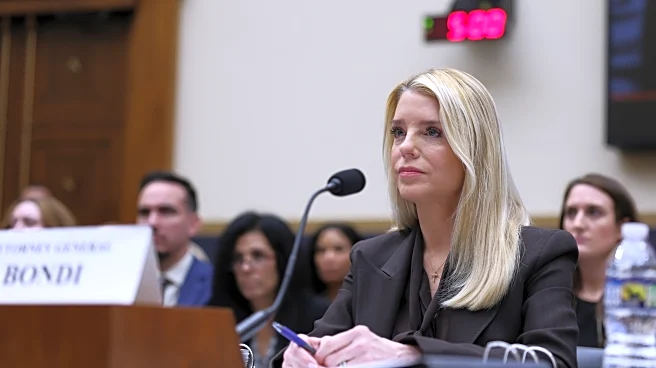What's Happening?
The White House is leveraging the ongoing government shutdown to advocate for significant reductions in the federal workforce. Budget Director Russell Vought has urged agencies to dismiss employees deemed nonessential during the funding lapse. The Trump administration is also freezing billions of dollars allocated for projects in states that supported Kamala Harris in the last election. These actions are part of a broader strategy to control spending and align federal operations with the administration's priorities. However, any workforce reductions must be initiated by agency leaders, as President Trump and Vought cannot directly enforce these changes. Legal challenges have emerged, with federal workers' unions filing lawsuits against the threat of dismissals during the shutdown.
Why It's Important?
The push to reduce the federal workforce and halt funding for certain projects could have significant implications for U.S. public policy and economic stability. If successful, these measures may lead to a smaller federal government and reduced spending on initiatives that do not align with the administration's values. This could impact states that rely on federal funding for clean energy and other projects, potentially stalling progress in these areas. The political maneuvering during the shutdown highlights the partisan nature of budgetary decisions and the administration's efforts to reshape federal priorities.
What's Next?
The administration's actions are likely to face continued legal challenges and political opposition, particularly from Democrats who view these moves as politically motivated. The outcome of these disputes could influence future government shutdowns and the administration's ability to implement its agenda. Additionally, the impact on federal employees and state projects will depend on the resolution of these legal and political battles.
Beyond the Headlines
The administration's strategy to use official communications to blame Democrats for the shutdown raises ethical concerns and potential violations of federal laws. This approach contrasts with previous administrations, which have typically refrained from explicitly blaming political opponents during shutdowns. The long-term effects of these tactics on public trust and government transparency remain to be seen.










